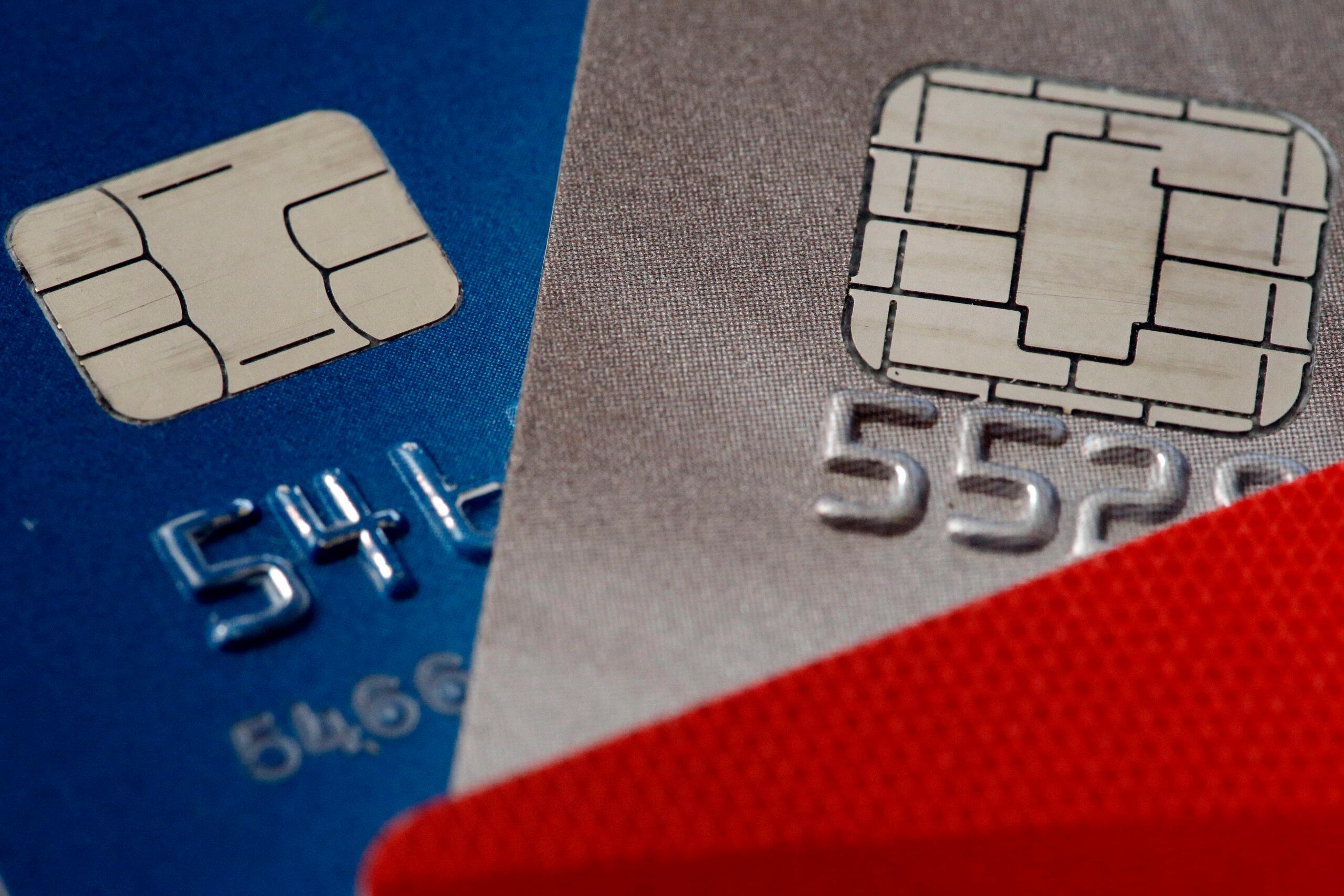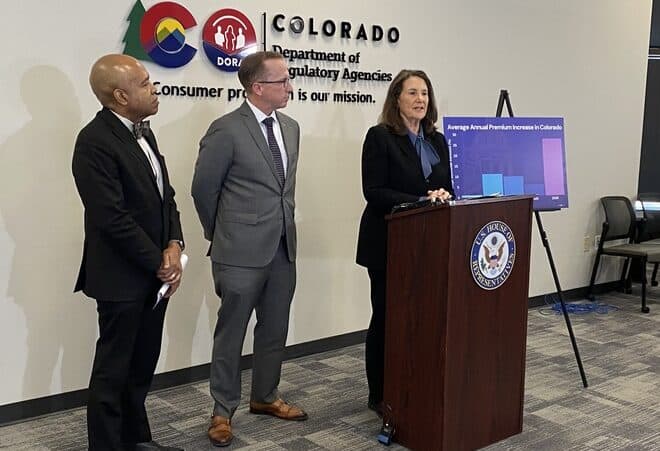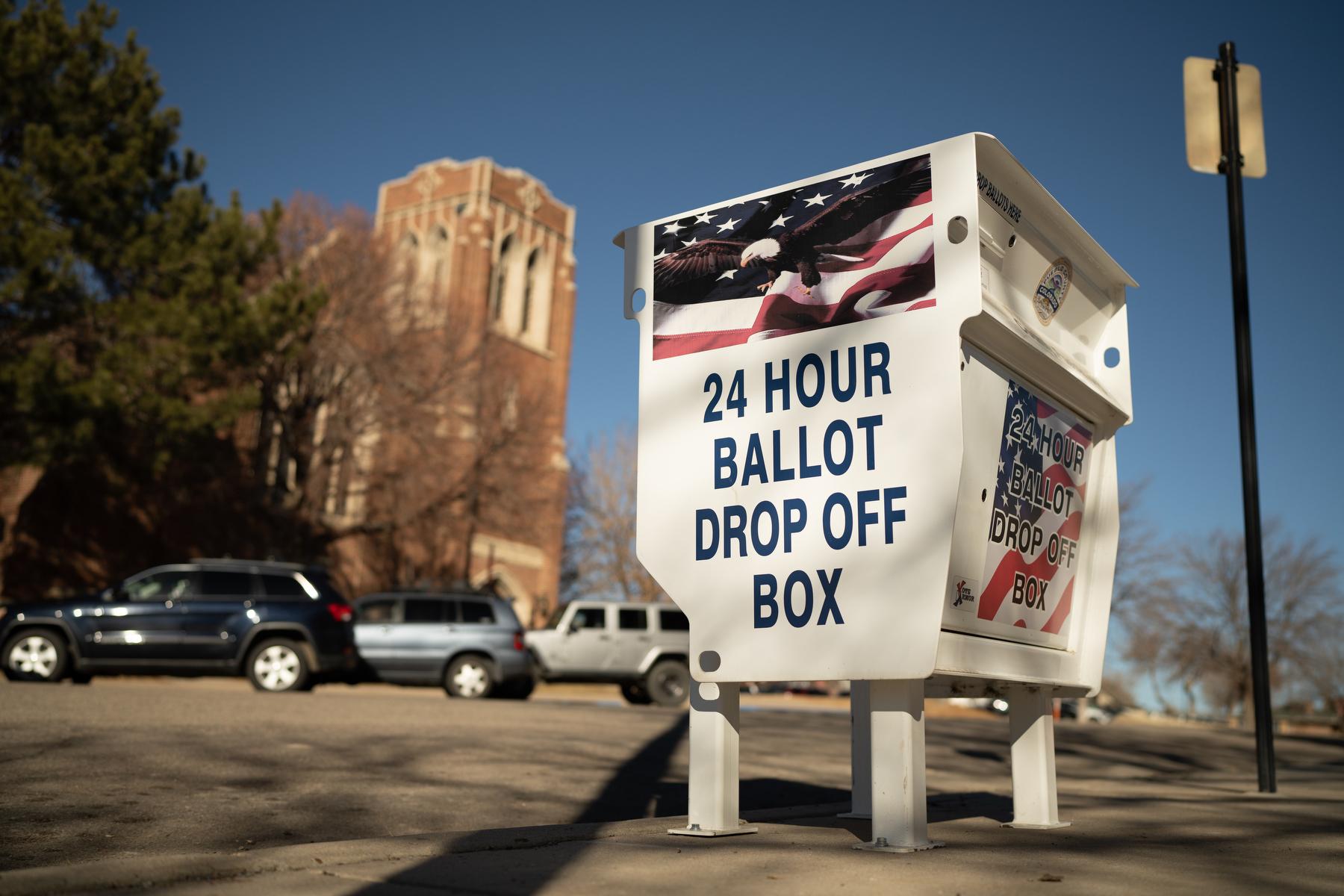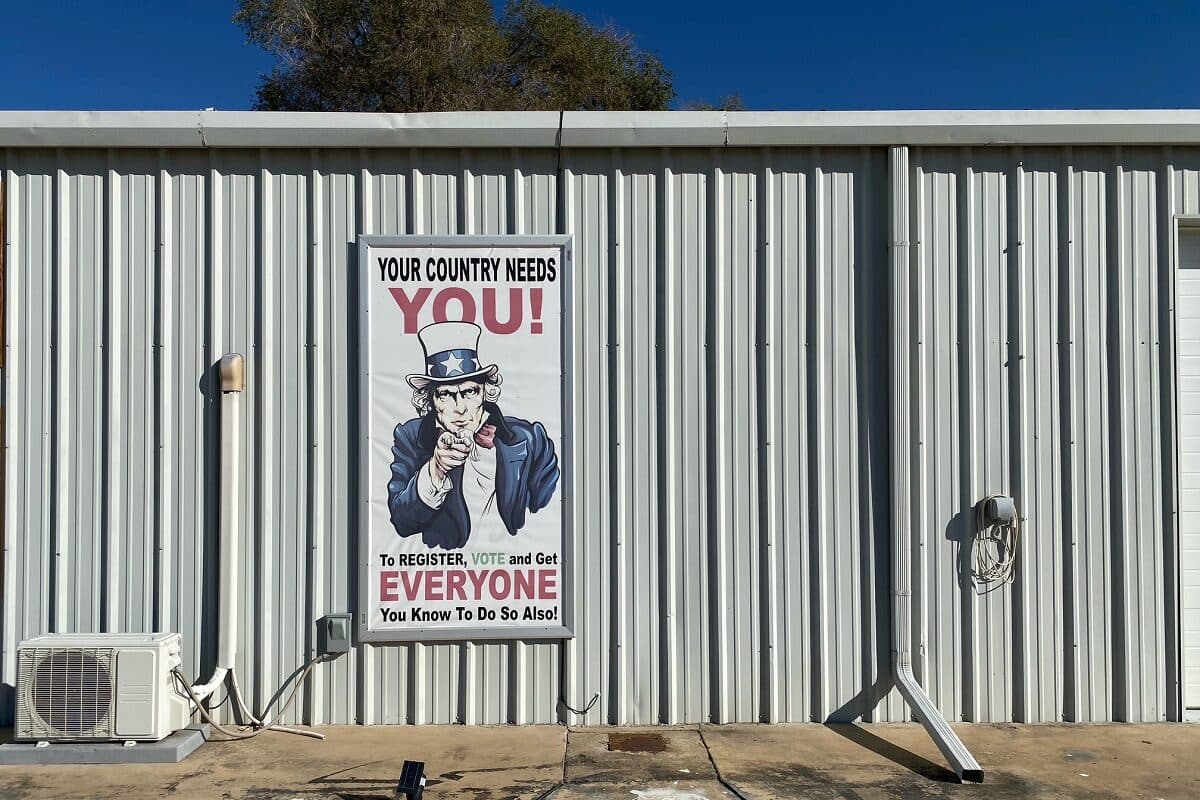
Credit scores are meant to determine someone’s ability to pay back a loan. They help lenders figure out who is creditworthy, and therefore who should be approved for credit, and what their interest rate will be.
But while credit scores seem like objective measurements, traditional scoring models are based almost entirely on someone’s credit history, which penalizes people from disadvantaged communities and unnecessarily perpetuates societal inequities.
These findings come from new research out of the Federal Reserve Bank of Kansas City, the regional branch that covers Denver. Economist Ying Lei Toh’s research also explains efforts to improve credit scoring to include measures that will benefit people who haven’t been able to build up credit history.
Toh spoke with Colorado Matters producer Rachel Estabrook about her research, and what consumers can do to improve their chances of getting approved for credit.
Read the interview
This interview has been edited for length and clarity.
Rachel Estabrook: What did this research open your eyes to?
Ying Lei Toh: Traditional credit scoring systems do not actually create a level playing field. They tend to favor consumers that come from more privileged backgrounds, from high-income households and from predominantly white neighborhoods. And they tend to be better indicators of creditworthiness for people with higher credit scores than those with lower credit scores. So in a sense, credit scores can perpetuate disparities in credit access across communities.
You found that credit scores do not always accurately predict who will be able to repay. Why not?
Credit scores are basically derived from the number of credit accounts a consumer has, what their credit limit is, the amount they owe, their repayment history, and so on. The most influential factor that goes into the calculation of a credit score is a consumer's payment history – so, if you have a long track record of making payments on time, that would increase your credit score.
The consumer's credit utilization rate is also considered. This is the share of credit that you're using out of the total amount of credit you have available to you. The lower the amount you have outstanding on your card, relative to your credit limit, the better it is for your credit score. People who are in the top credit score ranges are using less than 5% of their credit limits, typically.
Why don’t credit scores take into account how much money you have in the bank, let's say? Wouldn't that help a lender figure out if you'd be able to pay a credit card bill?
Yes, a lot of times lenders do not want to lend to consumers with no credit score just because they don't know anything about their creditworthiness. Historically, bank account balances and the amount of money you make are not taken into account for credit scoring, although there are newer models of credit scoring that are based more on cash flow and transaction data rather than credit history.
How does traditional credit scoring punish people from disadvantaged backgrounds?
The way the credit scoring model works is that it basically rewards people who are able to obtain their first line of credit and especially if they are able to ‘piggyback’ on the creditworthiness of somebody who has an established credit record or credit score. "Piggybacking" means doing things like becoming an authorized card user on somebody else's credit card, or having somebody cosign a loan with you. Those are ways for somebody who doesn't have credit to get started with their first line of credit and give them a head start, because if you're added as authorized user to somebody's card, you actually inherit the credit history of that account.
Consumers who come from less privileged backgrounds, or low-income households, and, you know, Black and Hispanic households, tend not to have that kind of access to somebody else whom they can ‘piggyback’ on.
If you don’t get started with a good credit history, what happens?
There are some credit card lenders who are willing to lend to consumers without a score, but the typical scenario is that consumers face some difficulty getting started. The worst case scenario is where some consumers actually get their credit history started because of negative events such as debt collection or bankruptcies. In that case, where consumers start off with these negative events, they are going to have a lower credit score from the get-go, and then research has shown that people who start off at a lower score tend to stay in the lower score bucket.
I was struck by a statistic in your article that about a quarter of people who want credit say they couldn't get it or couldn't get as much as they wanted.
Yes, and these consumers may actually be creditworthy but they just happen to have a low credit score that does not actually reflect their true creditworthiness. And, these consumers tend to come from less privileged communities and households.
Is anyone working on how the financial system could make credit scores more accurate predictors of someone's ability to pay back a loan, and hopefully get rid of the way that they punish people from disadvantaged backgrounds?
Yes, there have been efforts both by the credit scoring industry and federal regulators in terms of trying to promote the use of alternative data in credit scoring. In particular, I think rent and utility payment data has been looked at. Currently, rent and utility data are not systematically reported to credit bureaus. The only cases where landlords or utility companies report these payments are when consumers are highly delinquent, and not paying their bills. So, only negative bill payment or rent payment events are reported, whereas positive payment events are not reported. Encouraging the inclusion of this data in credit scoring would help consumers.
But there is some hesitancy to use these factors because regulation is not exactly clear about how this kind of data can be used, and there are consumer protection implications.
What can people do to improve their credit scores?
Make sure you pay your credit card bills on time, because payment history is the most influential factor in your credit score. And if you're planning to apply for credit in the future, it’s good to start applying for credit early. Consumers can start applying for a credit card at the age of 18, provided you have an income, or you can get added to your parents' credit card. So by starting to use credit early, you give yourself time to build a longer credit history and that's going to be good for your credit score.
The second thing is to keep your credit utilization rate low. Keep the amount of your outstanding balance relative to your credit limit low. Don't wait until the end of the month or the end of the billing cycle to pay it off. We can make multiple payments throughout the month, and that's going to keep your utilization rate lower.
I think there is a common misunderstanding among some consumers that carrying a balance on your credit card is a good thing, but that's actually not good for your credit score.
Also, check your credit reports to see if there are errors. You can request one copy of your record report from the three major credit bureaus every year. It is not uncommon for people's credit reports to contain inaccurate accounts or debt collection information.
For people who are thinking about what else they can do to improve their credit score, there are credit-building products that a consumer can apply for — products such as credit builder loans.








